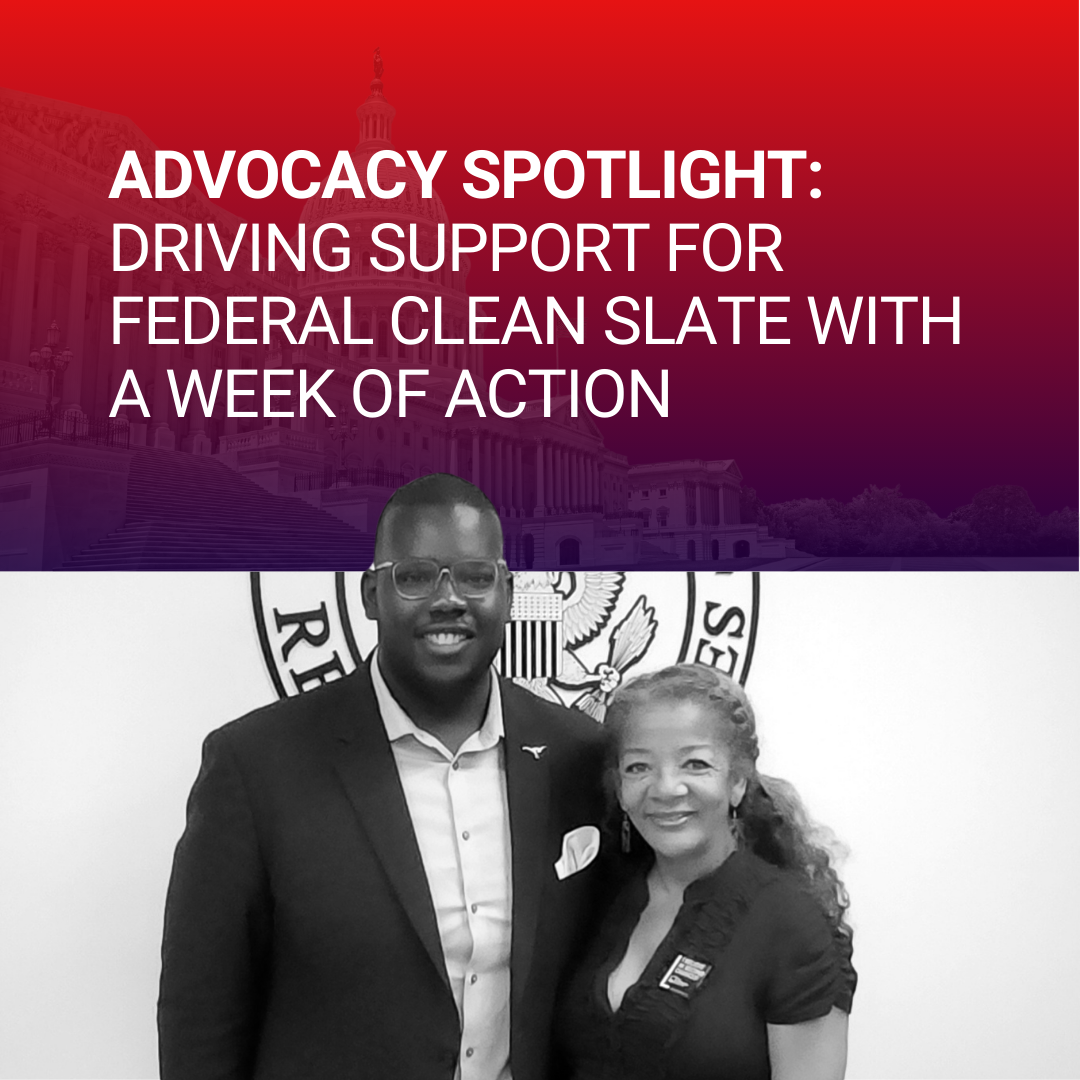From Stigma to Opportunity: 5 Reasons We Need Federal Record Clearance

Every year, millions of people in the United States face the stigma and barriers associated with having an arrest or conviction record. These barriers don't just impact individuals—they affect our families, our communities, and our economy. Currently, there is no standard process for the clearance of federal records — so for people in America who have a federal record, those barriers and the impacts they can have on our society are a permanent burden to bear.
The solution? The Clean Slate Act of 2023.
H.R. 2930, sponsored by Reps. Lisa Blunt Rochester (D-DE) and Nancy Mace (R-SC), and the Senate’s companion bill, S. 5266, sponsored by Sens. Rand Paul (R-KY) and Bob Casey (D-PA) make up the Clean Slate Act of 2023. This bipartisan legislation aims to automatically seal records of eligible nonviolent offenses, giving people the chance to move forward without the constant shadow of their past holding them back.
Here are five compelling reasons why we need a federal Clean Slate law:
1. Family Security
Having a record can severely limit a person’s ability to provide for their family. When parents and caregivers are barred from accessing stable employment due to a record, it directly affects the security and well-being of their children. Nearly one in three people in the United States — about 70 to 100 million individuals — have some kind of record, the majority of them for arrests, acquittals, and non-violent misdemeanors like minor drug possession.. Even after they’ve paid their debt to society, these people often find it challenging to secure jobs, housing, or other opportunities necessary to support their families. By implementing Clean Slate laws at the state and federal level, we can help ensure that these individuals are not penalized for life, allowing them to secure stable income and provide a better future for their families.
2. Public Safety
Clean Slate laws contribute to public safety by promoting rehabilitation and reintegration into society. Studies show that stable employment and housing are key factors in reducing recidivism. When individuals can clear their records and gain access to these essentials, they are less likely to re-offend. This not only benefits the individuals and their families but also makes communities safer. By giving people a real chance to rebuild their lives, we reduce the likelihood of future crimes and enhance overall public safety.
3. Economic Benefits and Employment Opportunities
Arrest and conviction records create significant barriers to employment. In fact, 94% of employers use background checks to screen out applicants with records. This widespread practice locks out millions of capable, qualified individuals from the workforce. Implementing a federal Clean Slate law would open doors to employment for many of these individuals, addressing labor shortages and boosting the economy. Access to stable jobs means more people contributing to the economy, paying taxes, and reducing reliance on public assistance programs. This is not just a benefit to those with records but to society as a whole.
4. Access to Education
A record can also limit access to education, as 72% of colleges and universities conduct background checks on prospective students. This practice prevents many individuals from pursuing higher education, which is often a critical step in achieving long-term employment and personal growth. Clean Slate legislation would remove this barrier, allowing more people to improve their skills and knowledge, leading to better job opportunities and a more educated workforce.
5. Access to Housing
Stable housing is a fundamental need, yet 90% of landlords use background checks to screen tenants, often disqualifying those with records. This practice contributes to housing insecurity and homelessness, making it difficult for people to establish a stable life. A Clean Slate law would help address these issues by enabling individuals with nonviolent records to secure housing, ensuring they have a safe place to live and thrive.
A second chance benefits us all.
The need for a federal Clean Slate law has never been more urgent. The Clean Slate Act provides a practical and compassionate solution by automatically sealing records for eligible nonviolent offenses and allowing others to petition for record sealing. By doing so, we can ensure that more people who have paid their debt to society are given a fair chance at rebuilding their lives.
Clean Slate legislation is not just about clearing records; it’s about opening doors to opportunities, strengthening families, improving public safety, and boosting our economy. It’s time to give millions of Americans the second chance they deserve. It’s time for a federal Clean Slate.
.avif)
.avif)



.png)
